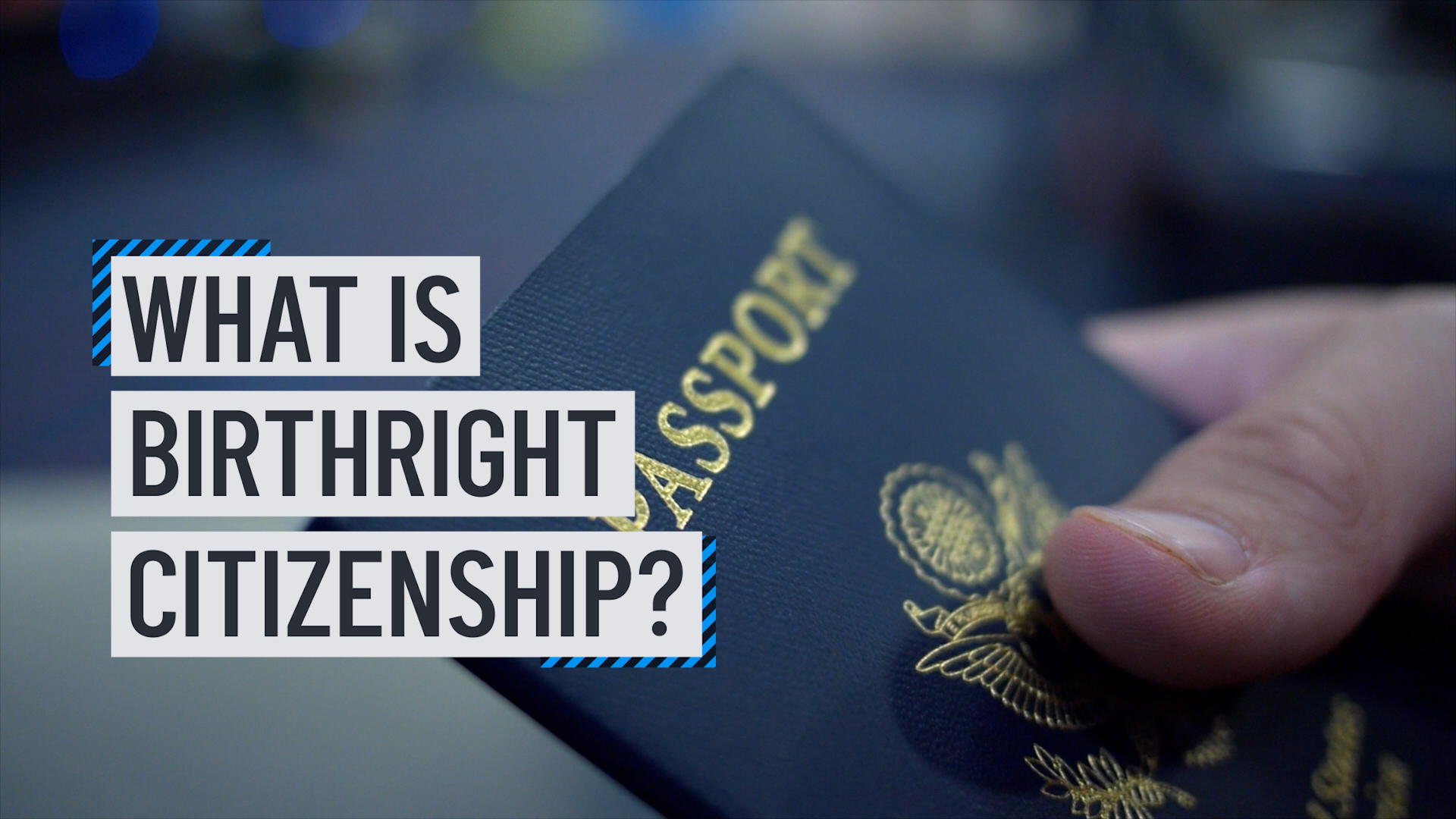Several people in the community are deeply concerned about President Donald Trump’s attempt to revoke birthright citizenship. NBC6’s Hatzel Vela reports
It hasn’t even been a full day since President Donald Trump signed executive orders dealing with immigration, and one of those orders has caused quite a storm across the country.
According to President Trump, just because a person is born in the U.S. doesn’t mean they're automatically a citizen.
Watch NBC6 free wherever you are
After Trump signed the executive order to ban birthright citizenship, 18 states, the District of Columbia and San Francisco have filed lawsuits in federal court to block the order.
The executive order signed by Trump states “…the privilege of United States citizenship does not automatically extend to persons born in the United States…” and goes on to spell out how someone born to undocumented parents, whether to their mother or father, won’t get that privilege.
Get local news you need to know to start your day with NBC 6's News Headlines newsletter.
Several groups have reacted to the executive order.
“We’re getting all sort of questions about this executive action,” said Thomas Kennedy with the Florida Immigrant Coalition.
Several people in the community are deeply concerned about the effects this may have on households.
“A lot of fear and uncertainty as to what this means,” Kennedy said.
Hours after Trump signed the order, it was challenged in the courts.
A lawsuit was filed by several groups in New Hampshire, and are claiming this issue has already been settled.
In 1898, “…the Supreme Court confirmed that children born in the United States of noncitizen parents are citizens under the fourteenth amendment’s citizenship clause.”
The groups that are suing said, “The move is overtly racist and threatens to harm millions of children and families across the country.”
“Out of all the executive orders, this one on birthright citizenship issues is the most problematic for him,” said Joseph Malouf, a constitutional attorney.
Malouf believes the executive order violates the Constitution.
Critics of the president argue that he’s looking to fight this out in the courts and are ultimately hoping the Supreme Court can offer a different interpretation.
“I don’t think that he has the legal authority to do this," Malouf said. "I think the courts are going to stop him very soon and I think that even a favorable Supreme Court for him is not going to be able to stretch what is clearly written in the Constitution.”
The only other option is to change the 14th Amendment, which would be very complicated.
First, two-thirds of the House and the Senate would have to vote in favor of amending the Constitution, which in a highly partisan and divided congress, would be extremely difficult.
Then it would have to be ratified or approved by 38 states.
The executive order regarding birthright citizenship goes into effect in 30 days from Monday, which would be on Feb. 19.



